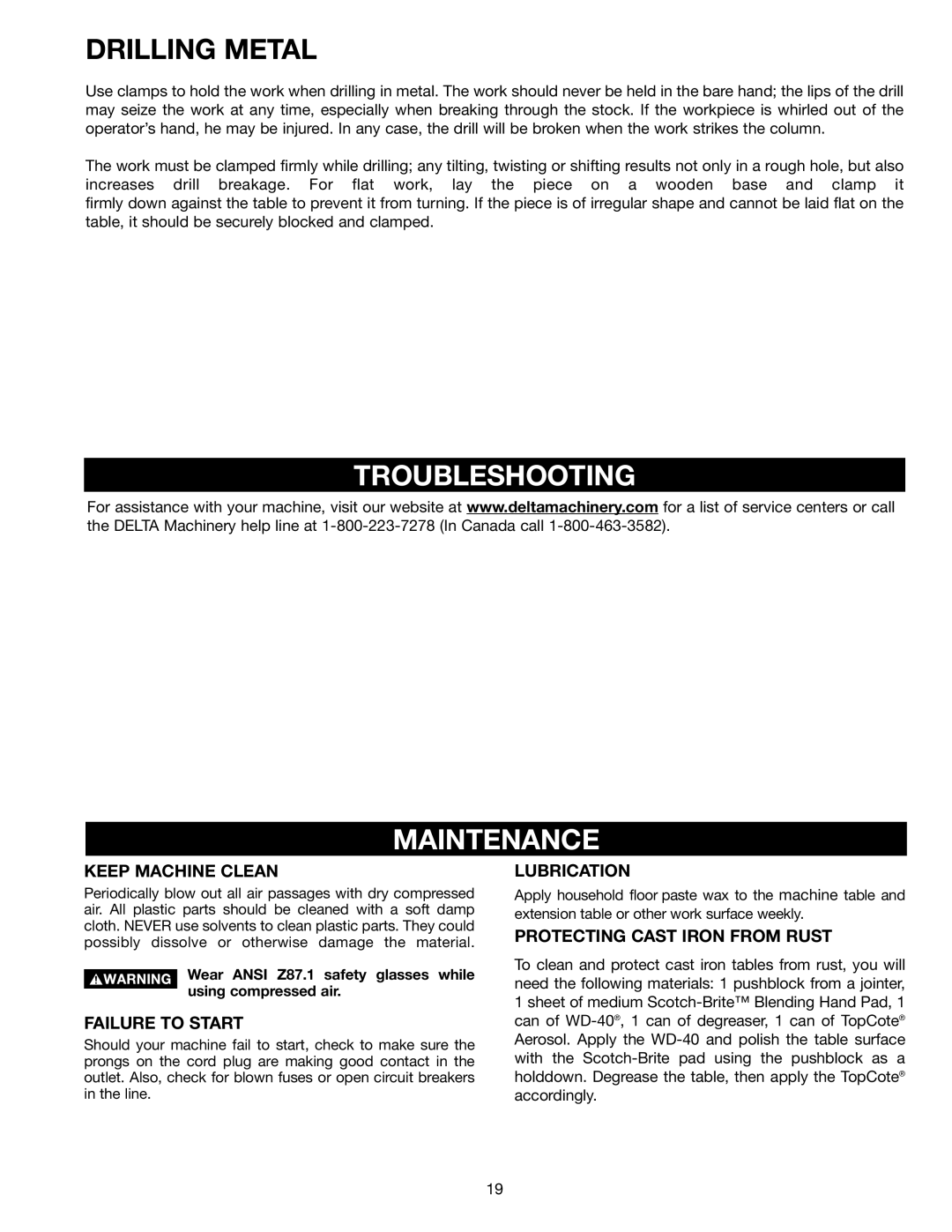
DRILLING METAL
Use clamps to hold the work when drilling in metal. The work should never be held in the bare hand; the lips of the drill may seize the work at any time, especially when breaking through the stock. If the workpiece is whirled out of the operator’s hand, he may be injured. In any case, the drill will be broken when the work strikes the column.
The work must be clamped firmly while drilling; any tilting, twisting or shifting results not only in a rough hole, but also increases drill breakage. For flat work, lay the piece on a wooden base and clamp it firmly down against the table to prevent it from turning. If the piece is of irregular shape and cannot be laid flat on the table, it should be securely blocked and clamped.
TROUBLESHOOTING
For assistance with your machine, visit our website at www.deltamachinery.com for a list of service centers or call the DELTA Machinery help line at
MAINTENANCE
KEEP MACHINE CLEAN
Periodically blow out all air passages with dry compressed air. All plastic parts should be cleaned with a soft damp cloth. NEVER use solvents to clean plastic parts. They could possibly dissolve or otherwise damage the material.
Wear ANSI Z87.1 safety glasses while using compressed air.
FAILURE TO START
Should your machine fail to start, check to make sure the prongs on the cord plug are making good contact in the outlet. Also, check for blown fuses or open circuit breakers in the line.
LUBRICATION
Apply household floor paste wax to the machine table and extension table or other work surface weekly.
PROTECTING CAST IRON FROM RUST
To clean and protect cast iron tables from rust, you will need the following materials: 1 pushblock from a jointer, 1 sheet of medium
19
